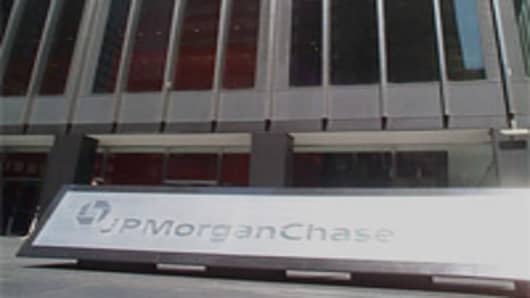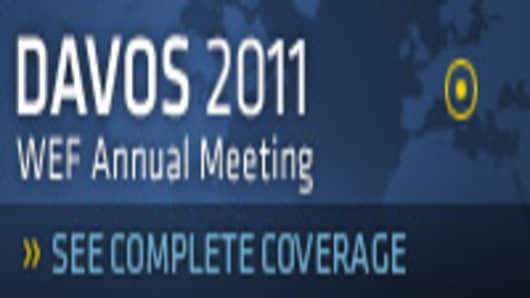Cash is flowing briskly again, two years after the worst economic crisis since the Great Depression, and is fueling the global economic recovery, JPMorgan Chase CEO Jamie Dimon told CNBC.
JPMorgan was one of the survivors of the financial crisis, swallowing up competitors and managing to avoid much of the damage that came from excessive risk-taking at its competitors.
Despite a climate of fear that still prevails in the capital markets, the worst of the crisis has passed and the world is in recovery mode, Dimon said in a live interview from the World Economic Forum in Davos.
"Now people see black swans behind every rock," Dimon said, referring to the idea of unforeseen events with huge consequences and the Black Swan book by Nassim Taleb. "The fact is loans are up, financial conditions are terrific, companies are growing again...we think there's a lot of cash. You're talking about trillions on balance sheets earning zero. Eventually people are going to say, 'Zero isn't an adequate return, I want to do something different than that.'"
The firm uses inflows to hedge funds and other risky areas as a benchmark for risk-taking, and that metric is indicating that investors are ready to back away from strictly safe-haven assets, said Mary Erdoes, CEO at JPMorgan Asset Management, who was interviewed along with Dimon.
She said hedge funds are seeing about $1 billion a month in inflows, which is comparable to 2007 numbers before the financial crisis began. At the same time, cash parked in money market mutual funds hit a post-crisis low of $2.757 trillion for the week ended Jan. 26, according to the Investment Company Institute.
"They want to put money back to work," Erdoes said.
Dimon said the capital inflows also are happening at JPMorgan and will allow the company to reward investors once the latest round of stress tests are completed and banks get approval to return money to investors.
"We think we're going to have plenty of capital," he said. "Even under highly stressed environments we're going to have a lot of capital to invest and grow."



